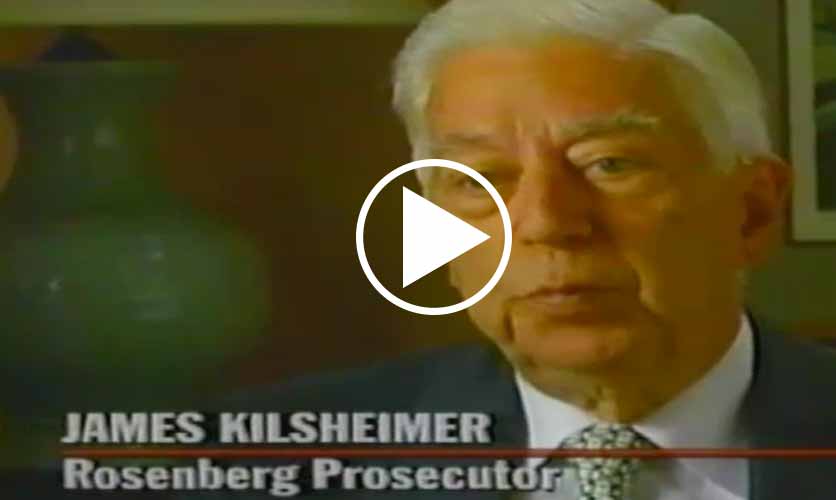Rosenberg Trial (1951)

The Rosenberg Trial is the sum of many stories: a story of betrayal, a love story, a spy story, a story of a family torn apart, and a story of government overreaching. As is the case with many famous trials, it is also the story of a particular time: the early 1950's with its cold war tensions and headlines dominated by Senator Joseph McCarthy and his demagogic tactics. The Manhattan Project was the name given to the top secret effort of Allied scientists to develop an atomic bomb. One of the Manhattan Project scientists working in Los Alamos was a British physicist named Klaus Fuchs. Twice in 1945 Fuchs met with a Soviet agent named Raymond and provided notes on the working design for the atomic bomb.
In February 1950, less than two weeks after a jury convicted Alger Hiss of perjury for denying under oath that he had passed secret information to a Communist agent named Whittaker Chambers, Klaus Fuchs was arrested and confessed to disclosing to the Soviets information about the Manhattan Project. One week after Fuchs' arrest, Senator Joseph McCarthy from Wisconsin propelled himself into the headlines by charging that the State Department employed over 200 Communist agents. It was a bad time to be a suspected Communist; it was a terrible time to be a suspected spy.
Fuchs' arrest, which began the chain of investigations that led authorities to Julius and Ethel Rosenberg, was made possible by American cryptanalysts... Continued

